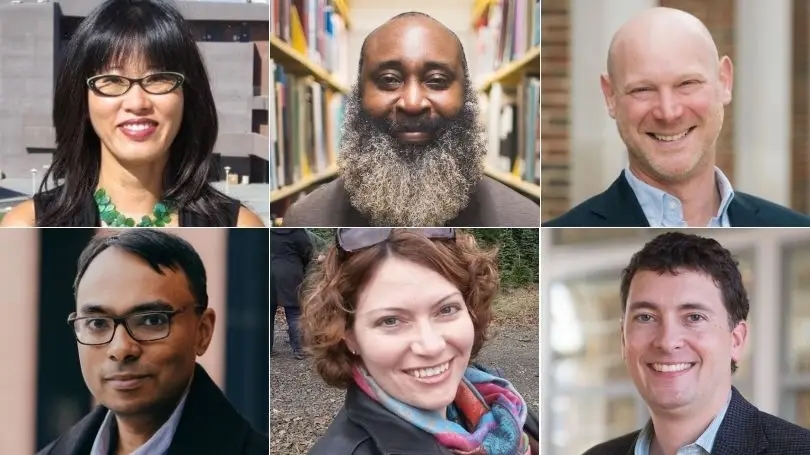Six faculty members have joined Dartmouth's residential house communities as inaugural faculty fellows.
The fellows will collaborate with house leadership teams to expand program offerings geared toward intellectual engagement and deepening faculty-student connections.
"One of the distinguishing elements of Dartmouth's house communities, when compared to peer institutions, is the broader and more inclusive involvement of faculty and staff affiliates," says Professor of Anthropology Sienna Craig, who serves as house professor at South House and as co-director, with Associate Professor of Sociology Janice McCabe, of house communities development.
"Faculty participation is an element of this system that students appreciate and wish to see expand," Craig says. "This new program bridges the Division of Student Affairs with the Faculty of Arts and Sciences and helps us increase student access to members of the faculty in residential spaces."
All undergraduates are assigned to one of six houses when they arrive as first-year students, and they maintain their affiliation to their house throughout their time at Dartmouth. Each house is overseen by a house professor who lives in a single-family home near the student residences.
At this time four of Dartmouth's six house communities have appointed faculty fellows: Professor of Computer Science Amit Chakrabarti (East Wheelock House), Professor of Anthropology Nathaniel Dominy (North Park House), Professor of English and Creative Writing Jodi Kim (North Park House), Senior Lecturer of French Kelly McConnell '00, Guarini '03, (Allen House), Associate Professor of History and Asian Studies Edward Miller (South House), and Assistant Professor of Art History Adedoyin Teriba (South House).
Current house professors developed the Faculty Fellows program with support from the Division of Student Affairs and the Office of the Dean of Faculty. When fully launched, the program will support one or two faculty fellows each year affiliated with each house. Tenure-line professors or lecturers with multi-year contracts are eligible to serve as fellows, who receive a modest research stipend in exchange for dedicated service within each house community.
"We are excited to welcome the inaugural cohort this year, and will be putting out a broad call for new fellows for the 2024-25 academic year at the end of spring term," Craig says.
Here, each new fellow shares a few words about their motivation for joining Dartmouth's house communities.
